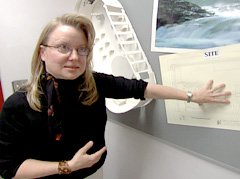Assessment Professional Development Guide
An overview of the Edutopia professional development guide for understanding the many ways to assess student learning in the classroom.
The assessment professional development guide is meant for use either after completion of the project-based learning professional development guide or with participants who are familiar with project-based learning. The module is designed for a two to three hour class or session, divided into two parts.
Part one is a guided process, designed to give participants a brief introduction to comprehensive assessment. It answers the questions "Why Is Assessment Important?", "What are Some Types of Assessment"?, and "How Do Rubrics Help?"
Part two assigns readings and activities for experiential, project-based learning about assessment. Ideally, the tasks will be accomplished using group collaboration and with the use of technology. These activities are outlined in the Workshop Activities section. You will also find links to examples, from the Edutopia.org video library, of comprehensive assessment at the elementary, middle, and high school levels.

The Resources for Assessment page includes recommended websites, books, and additional videos to learn more about PBL in this section.
This guide was designed to address many of the National Educational Technology Standards (NETS), established by the International Society for Technology in Education (ISTE).
To find the specific standards for your state, visit this page at Education World that lists standards by academic subject and by state.
Continue to the next section of the guide, Why Is Assessment Important?